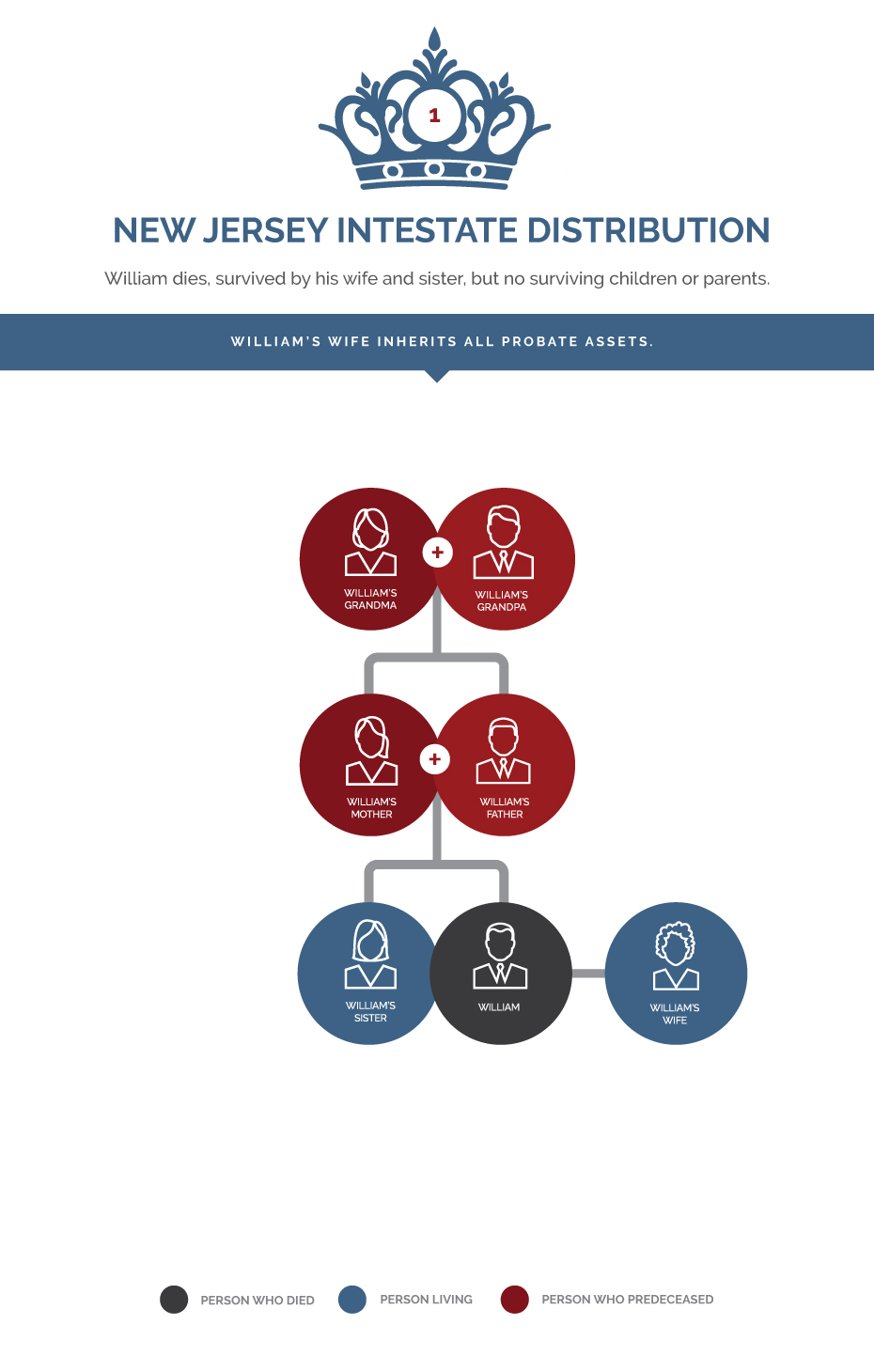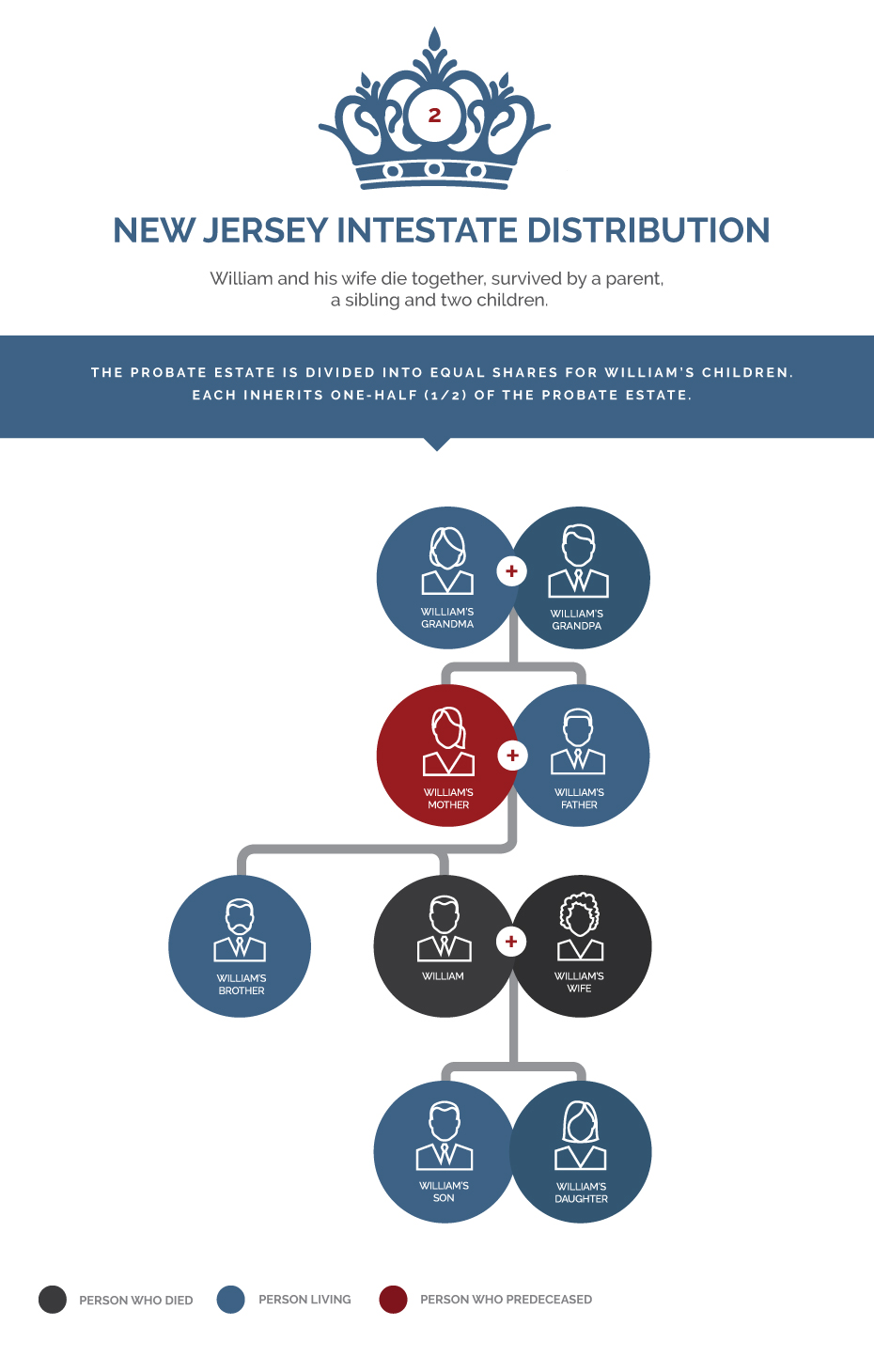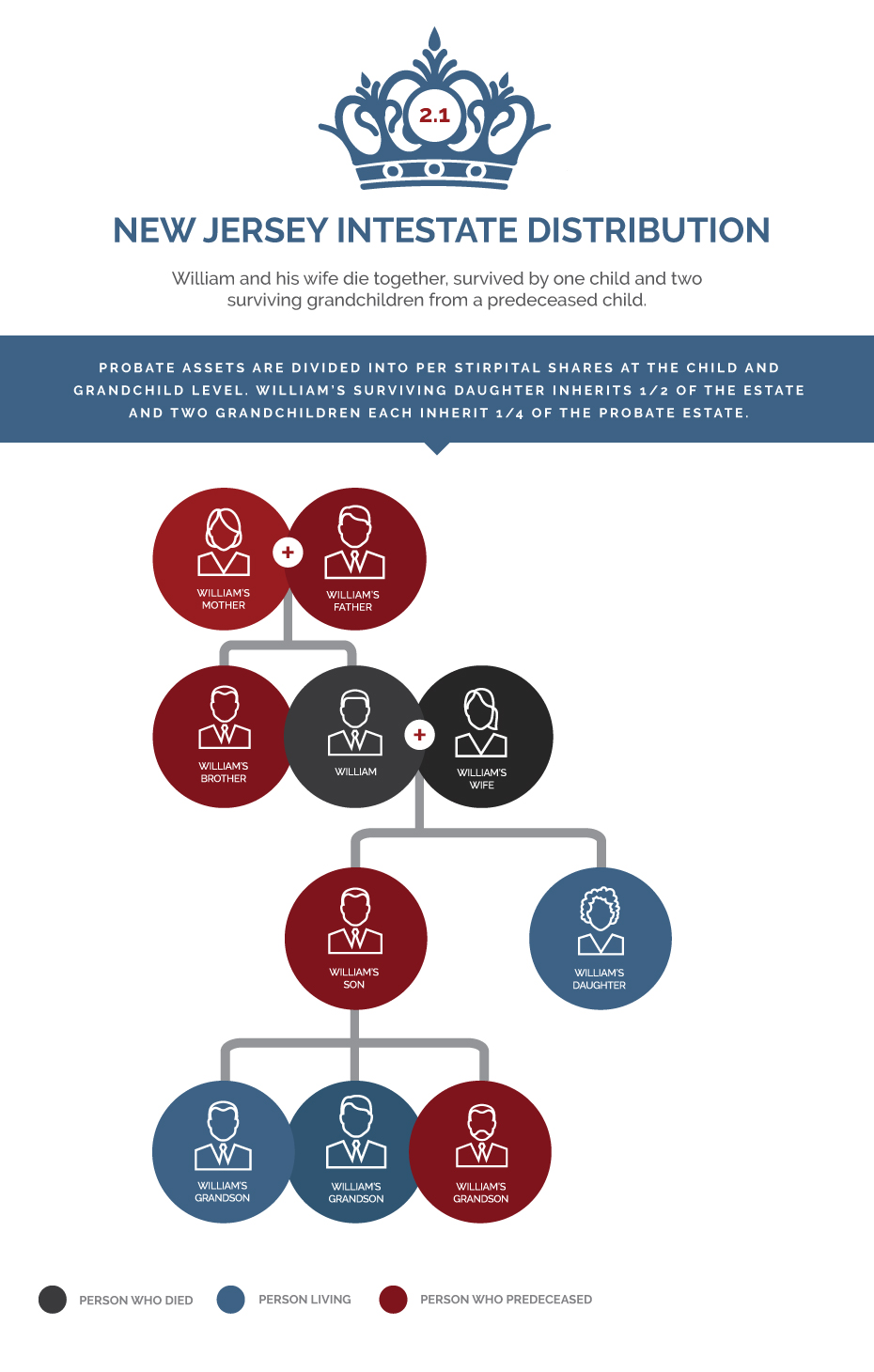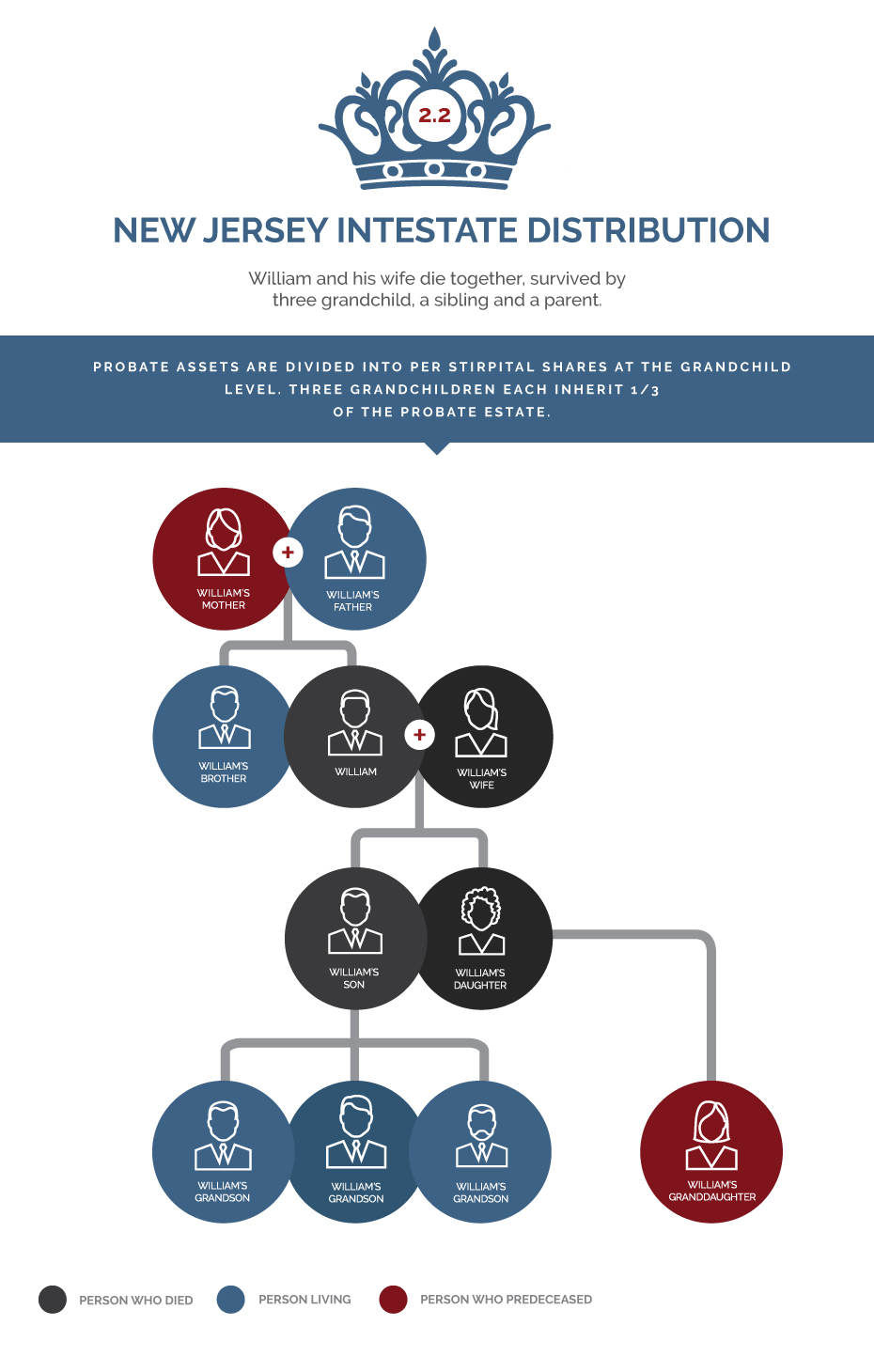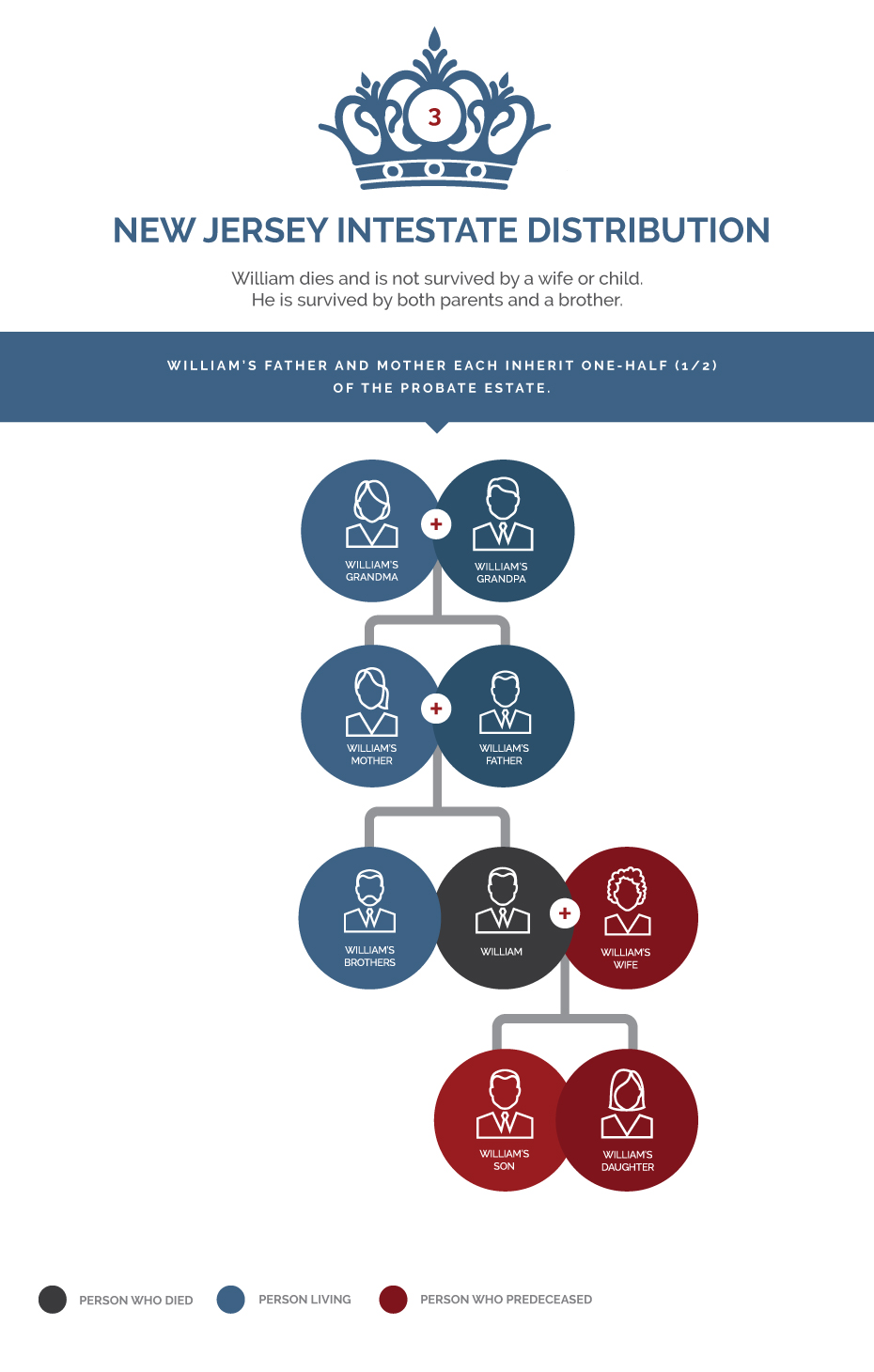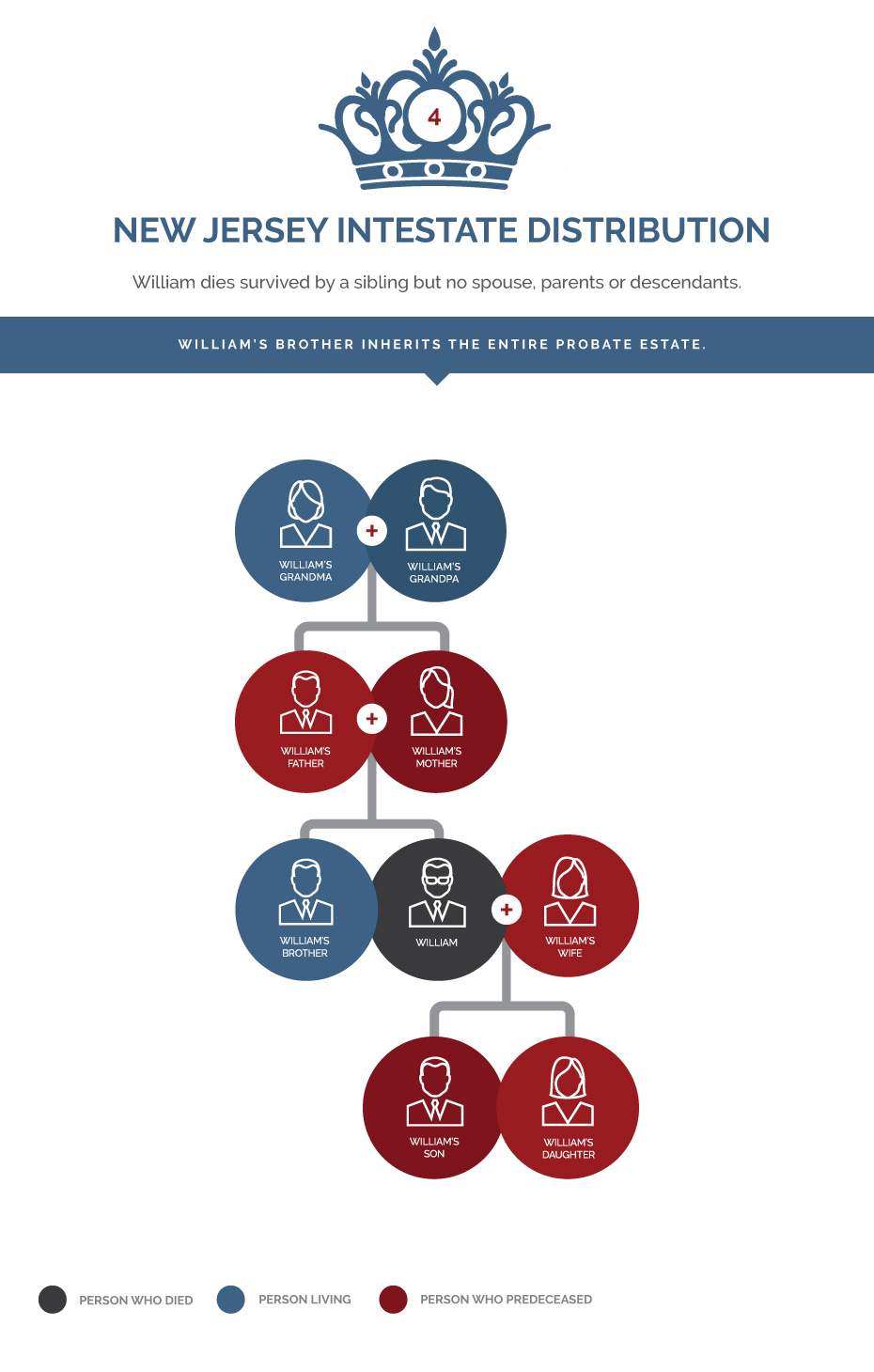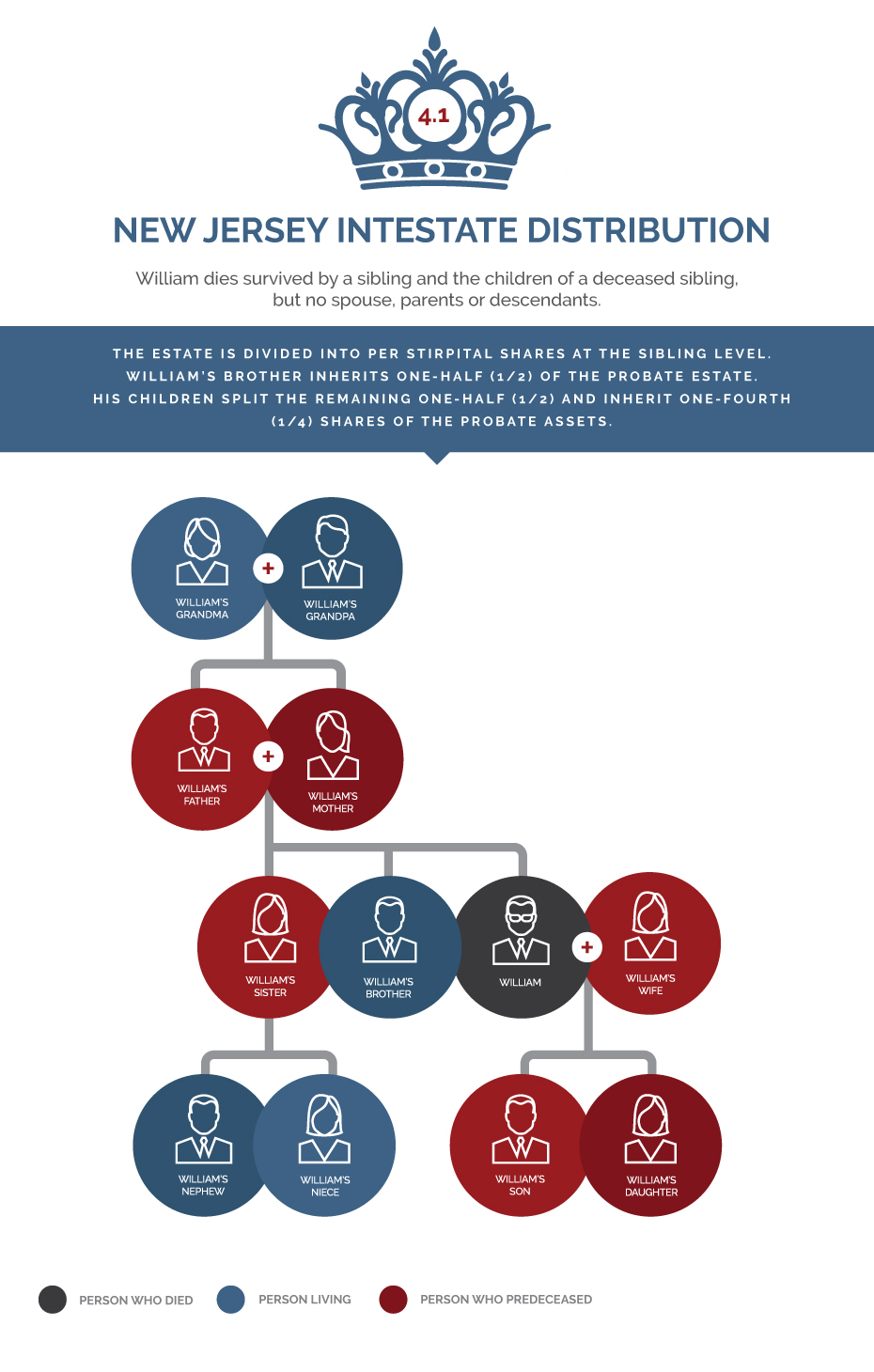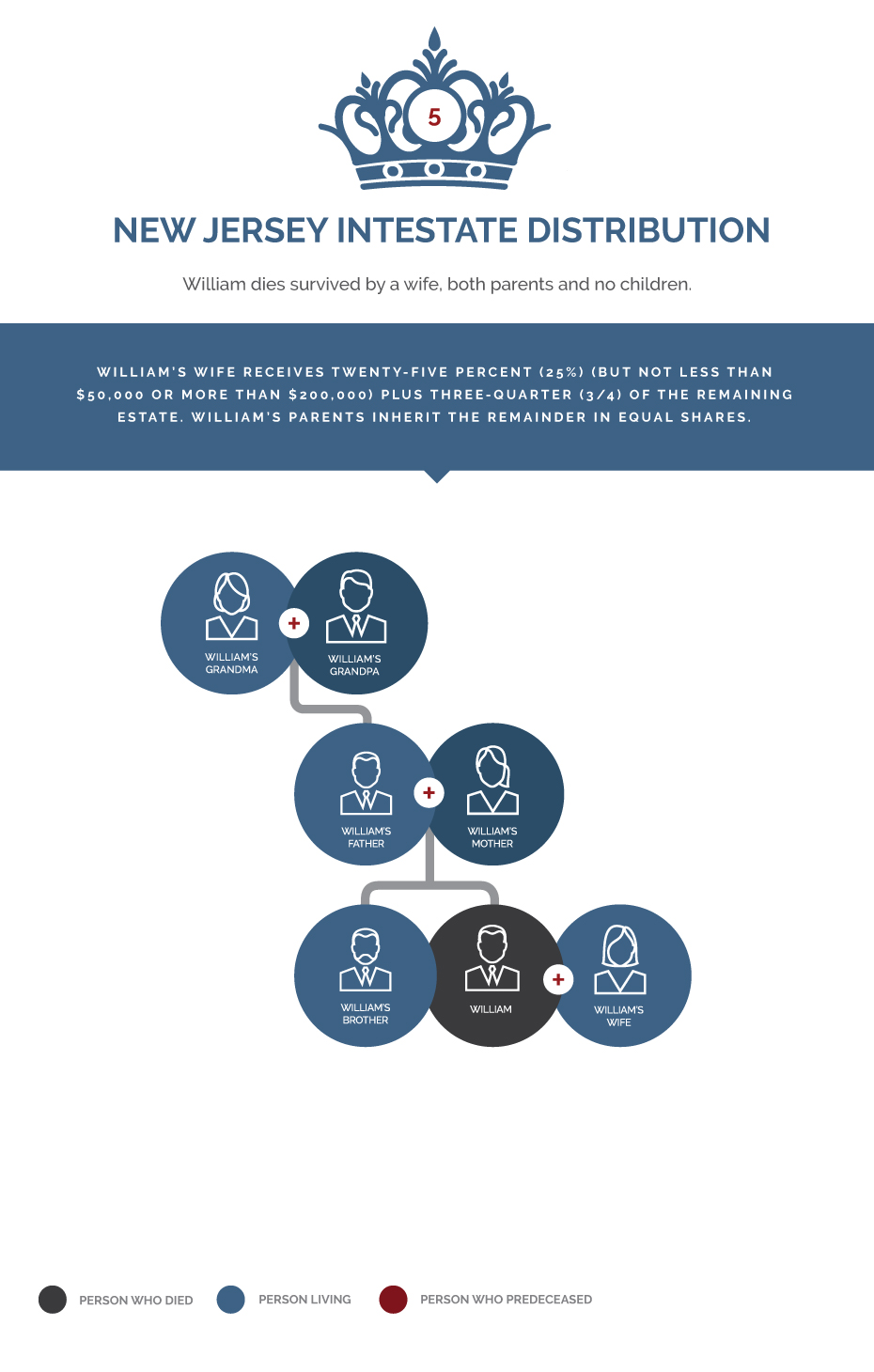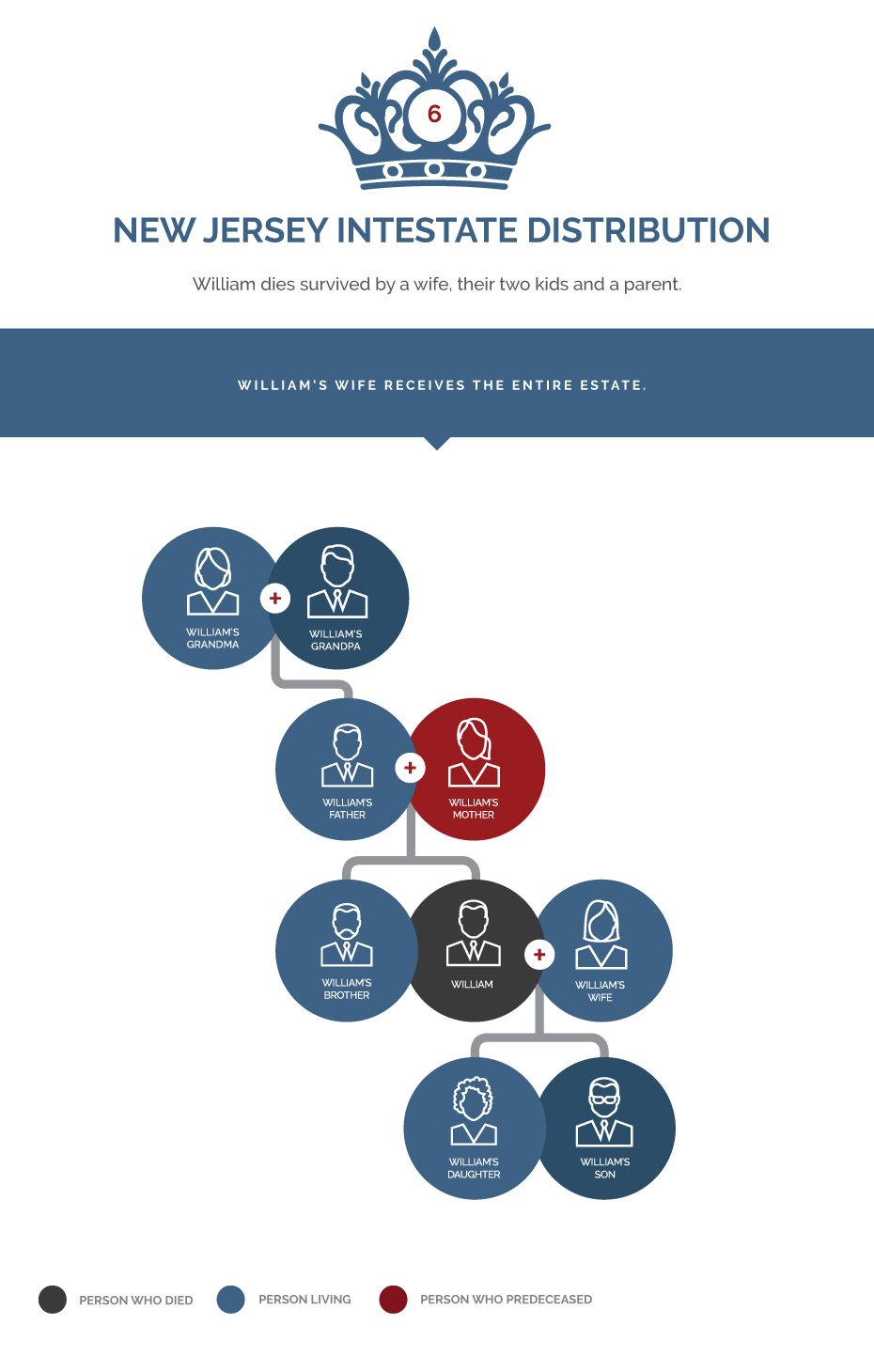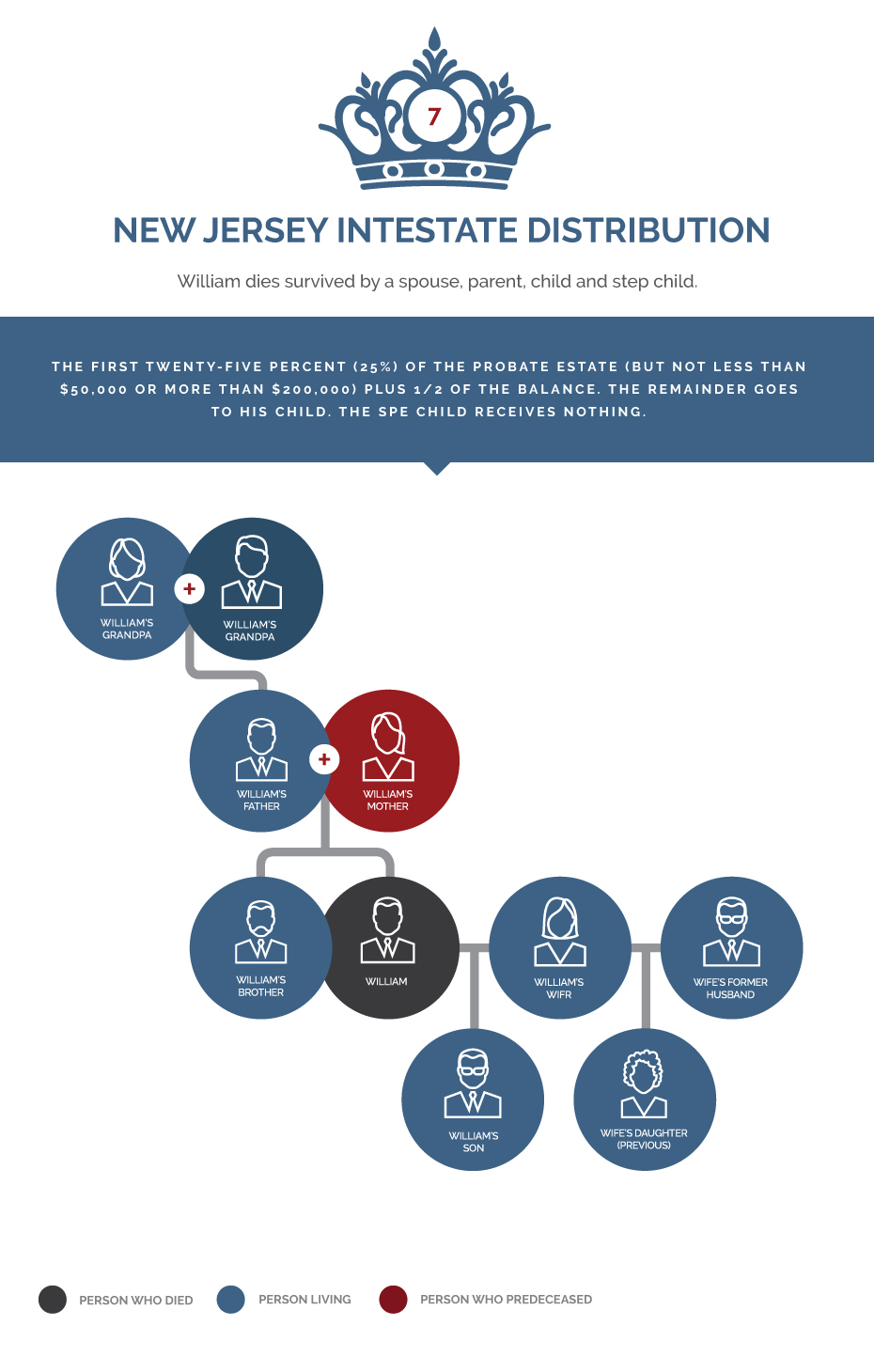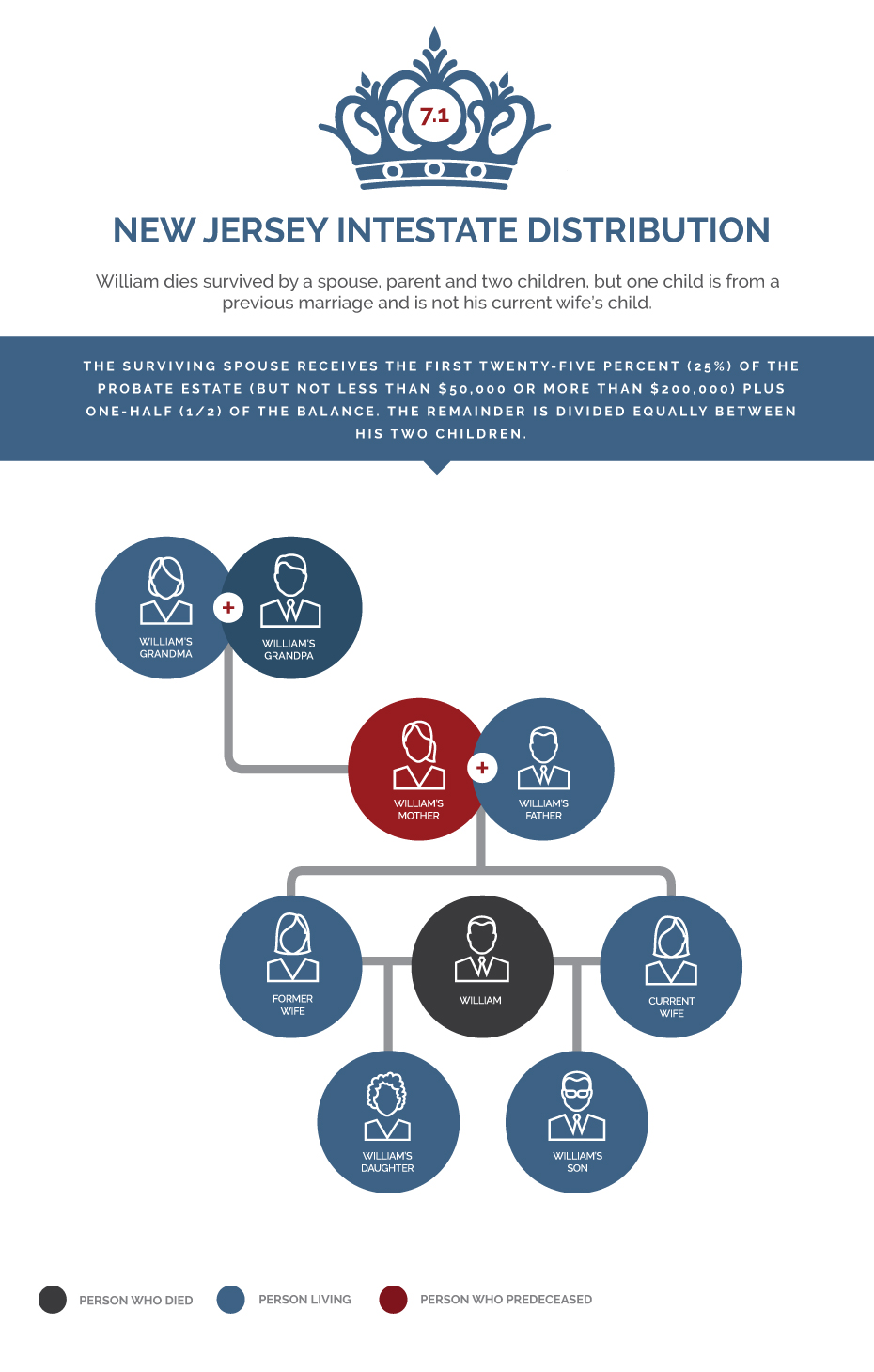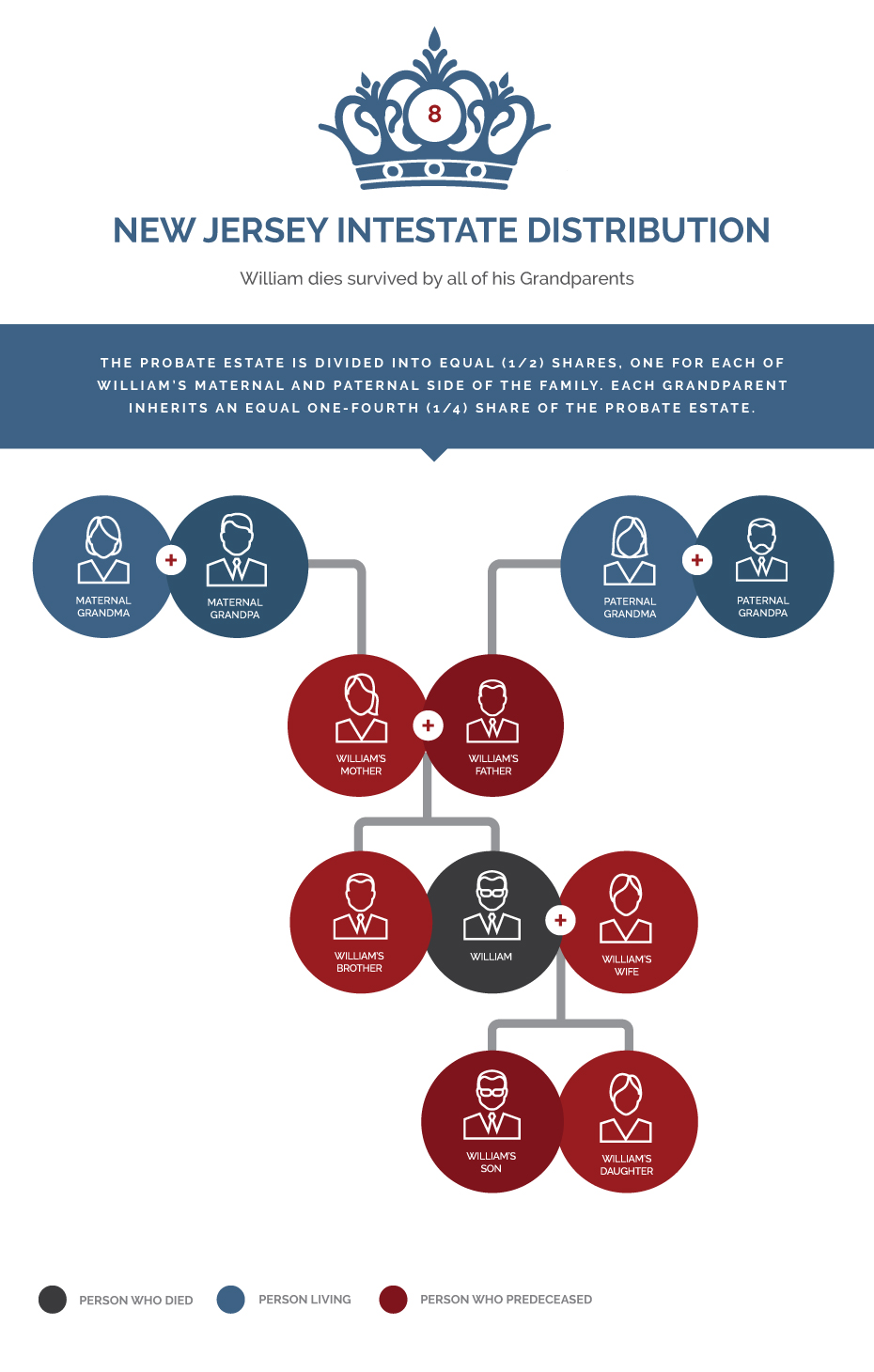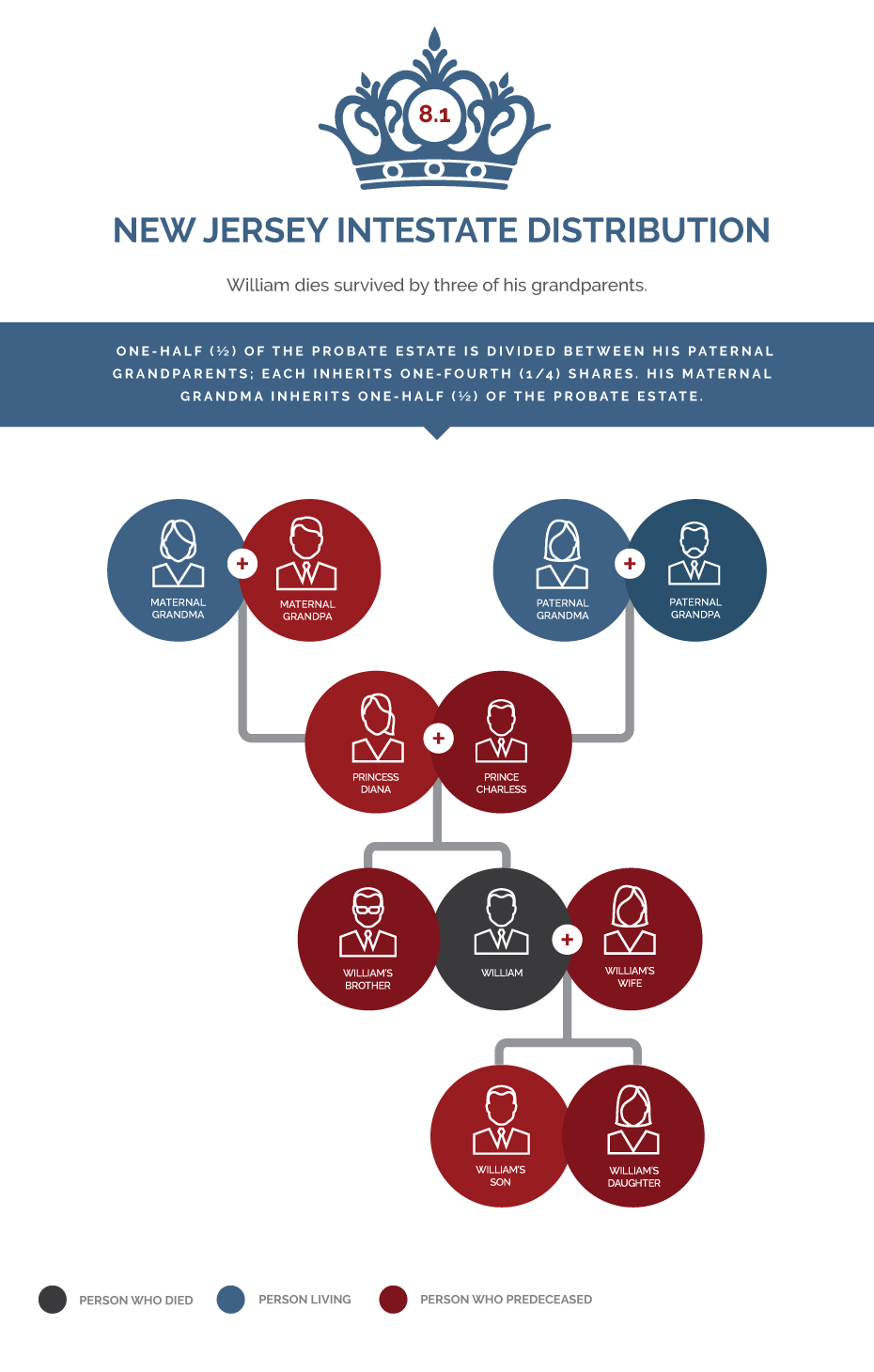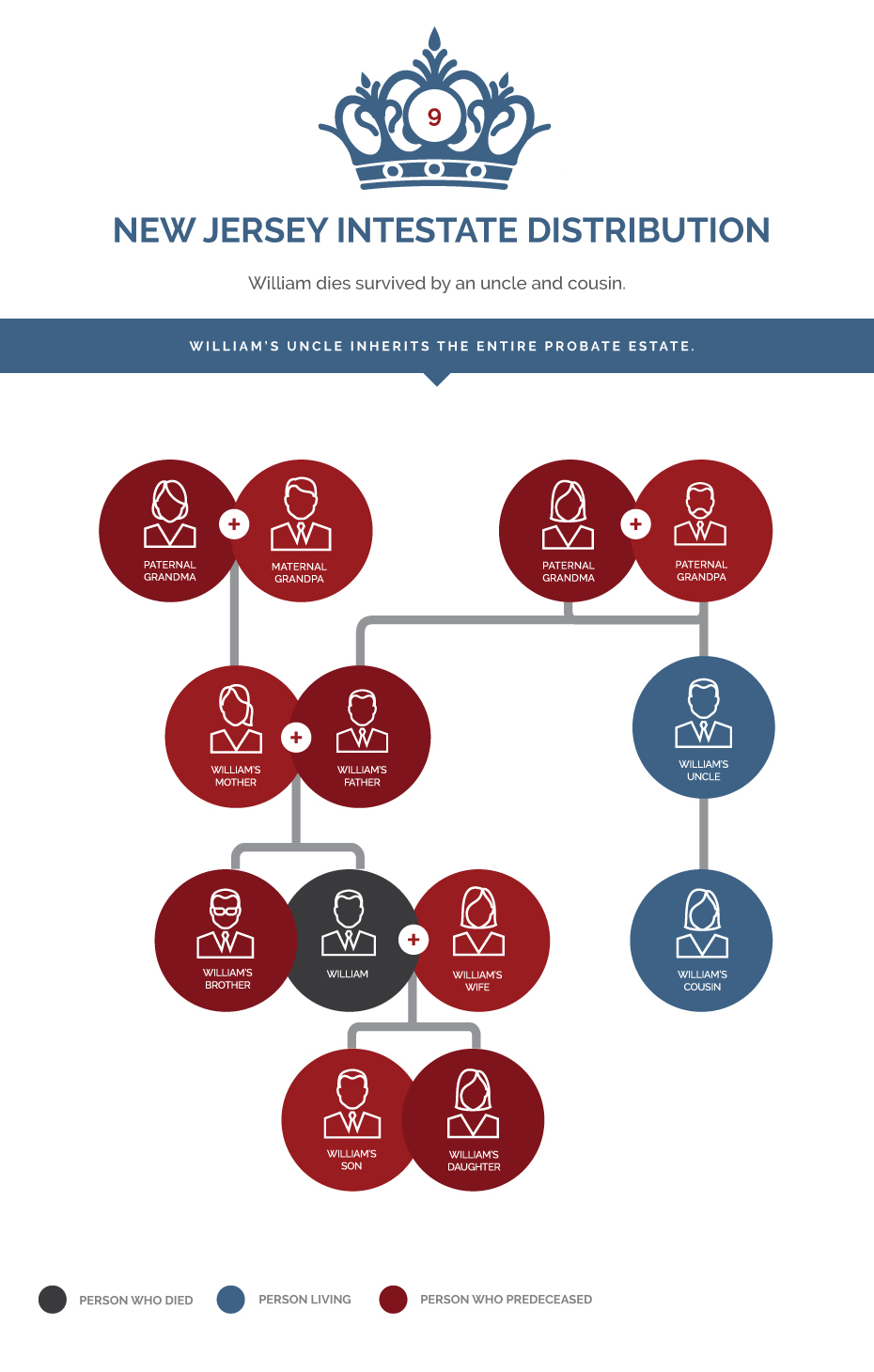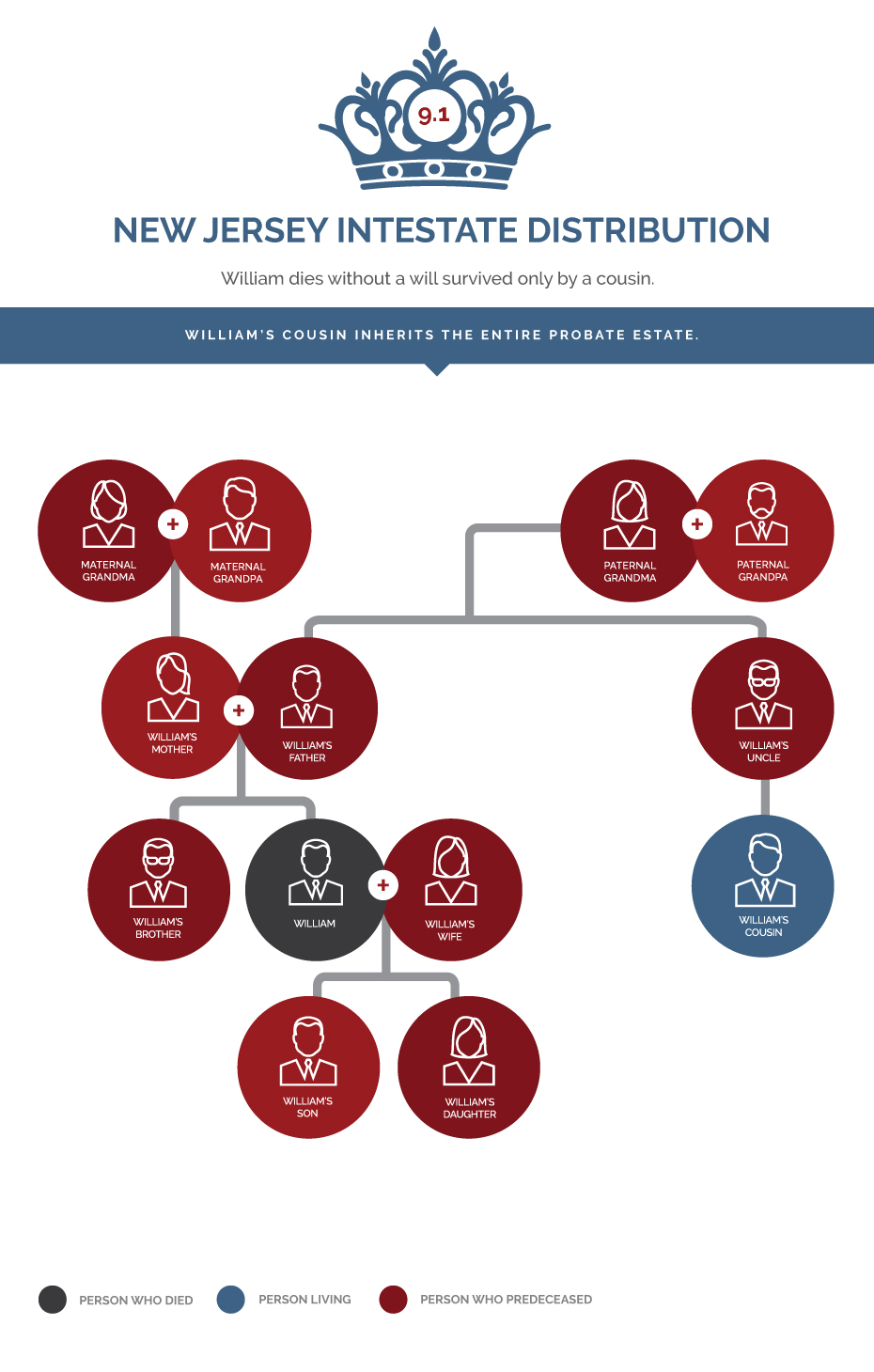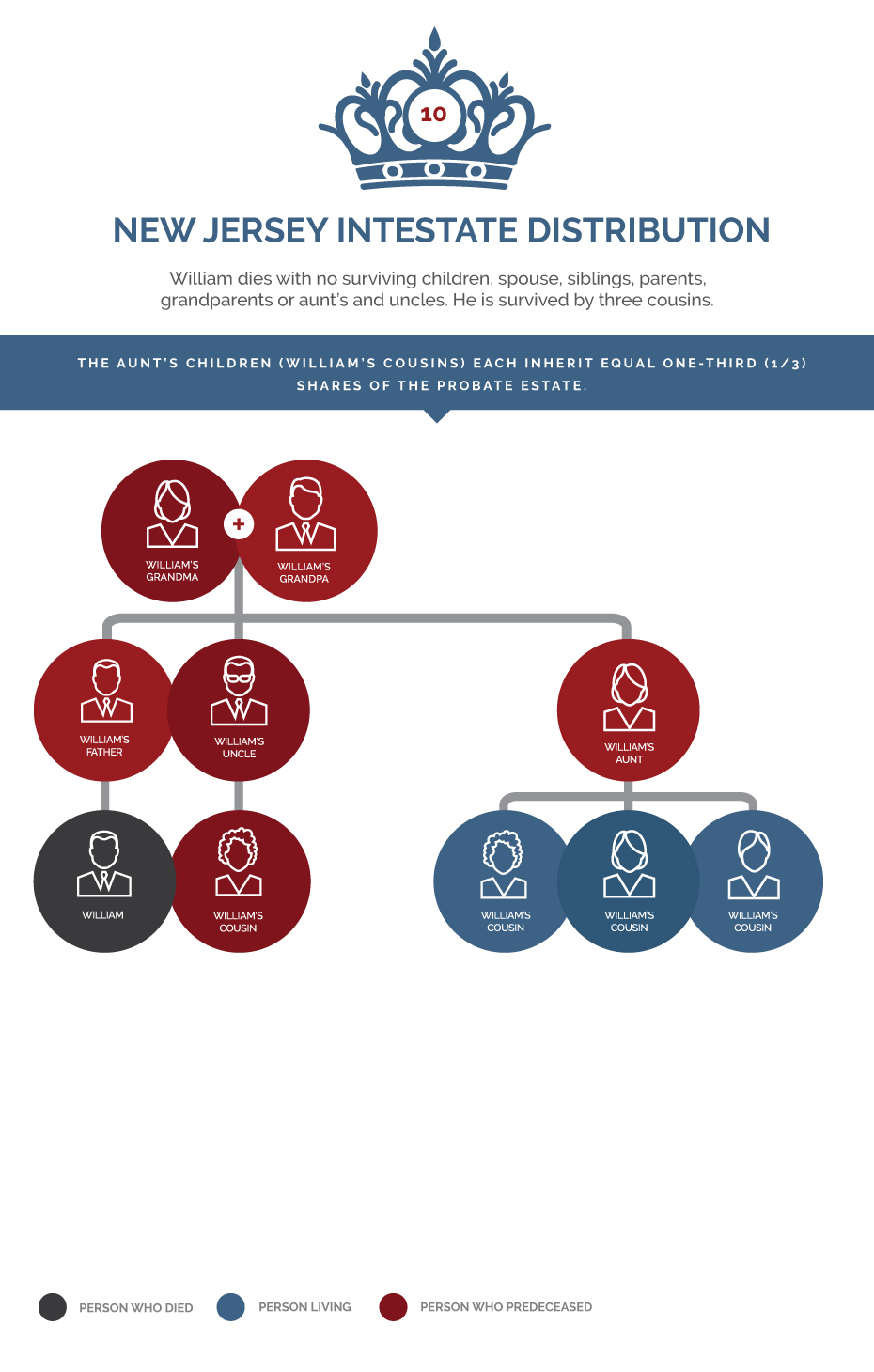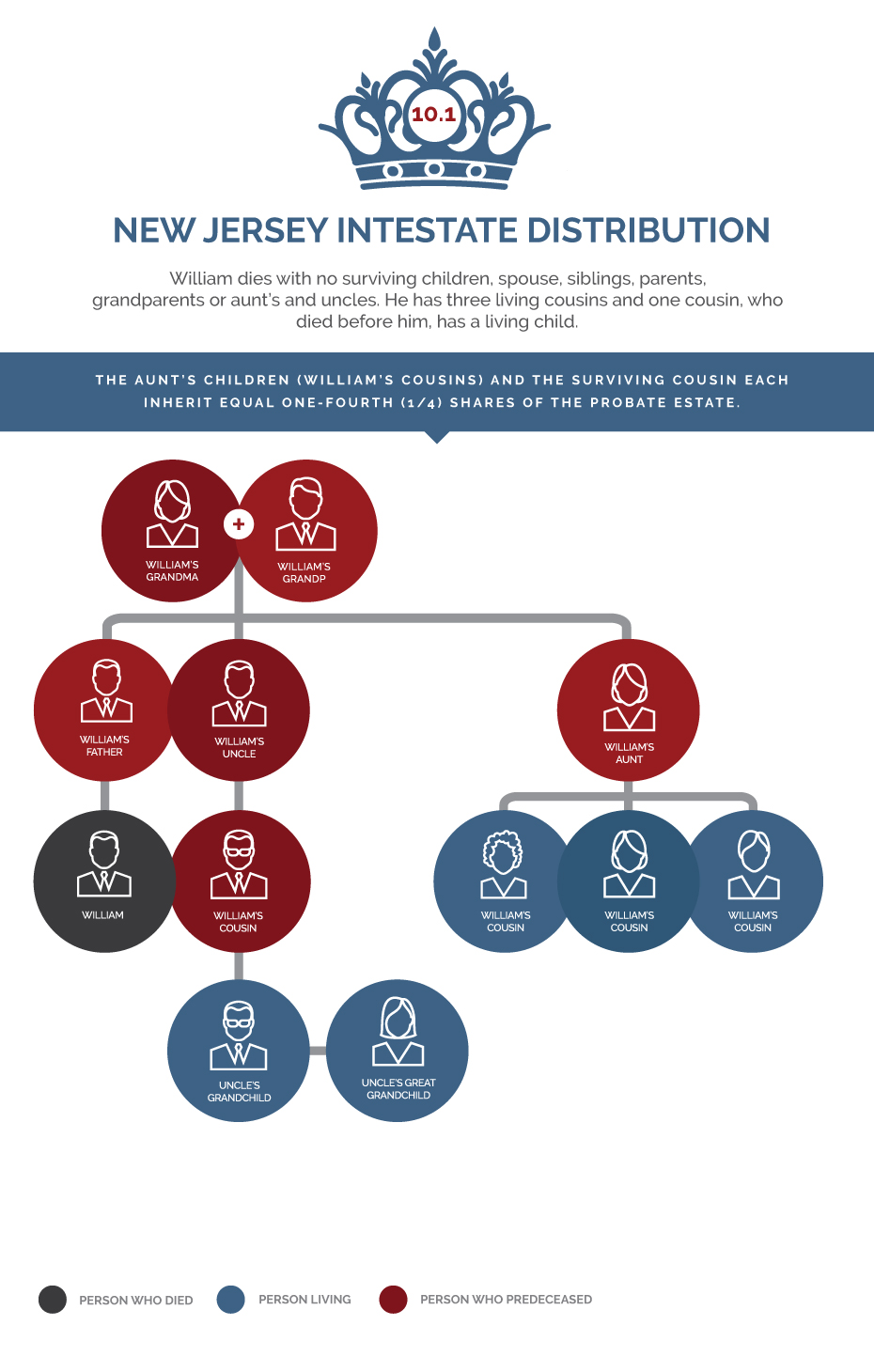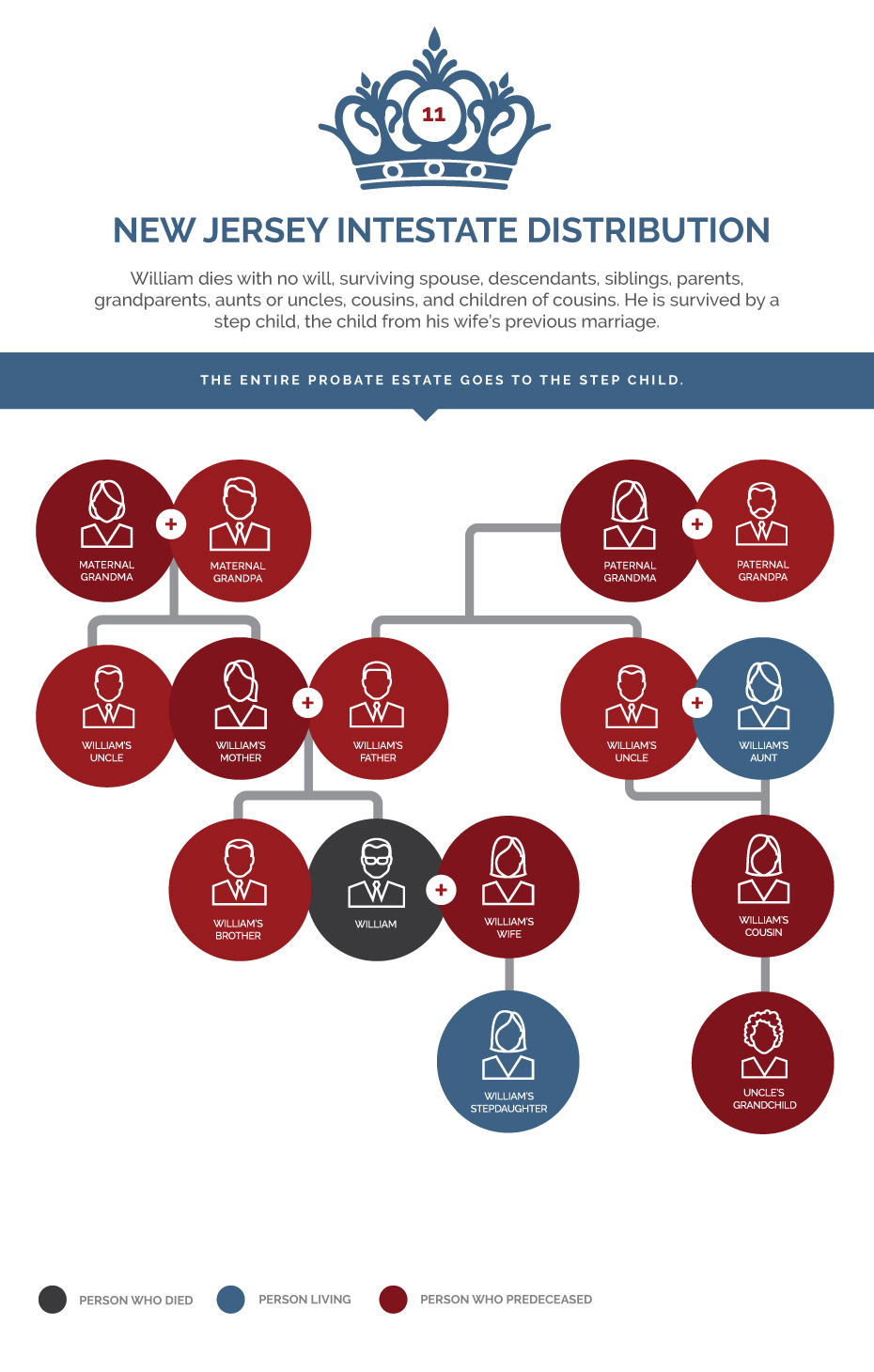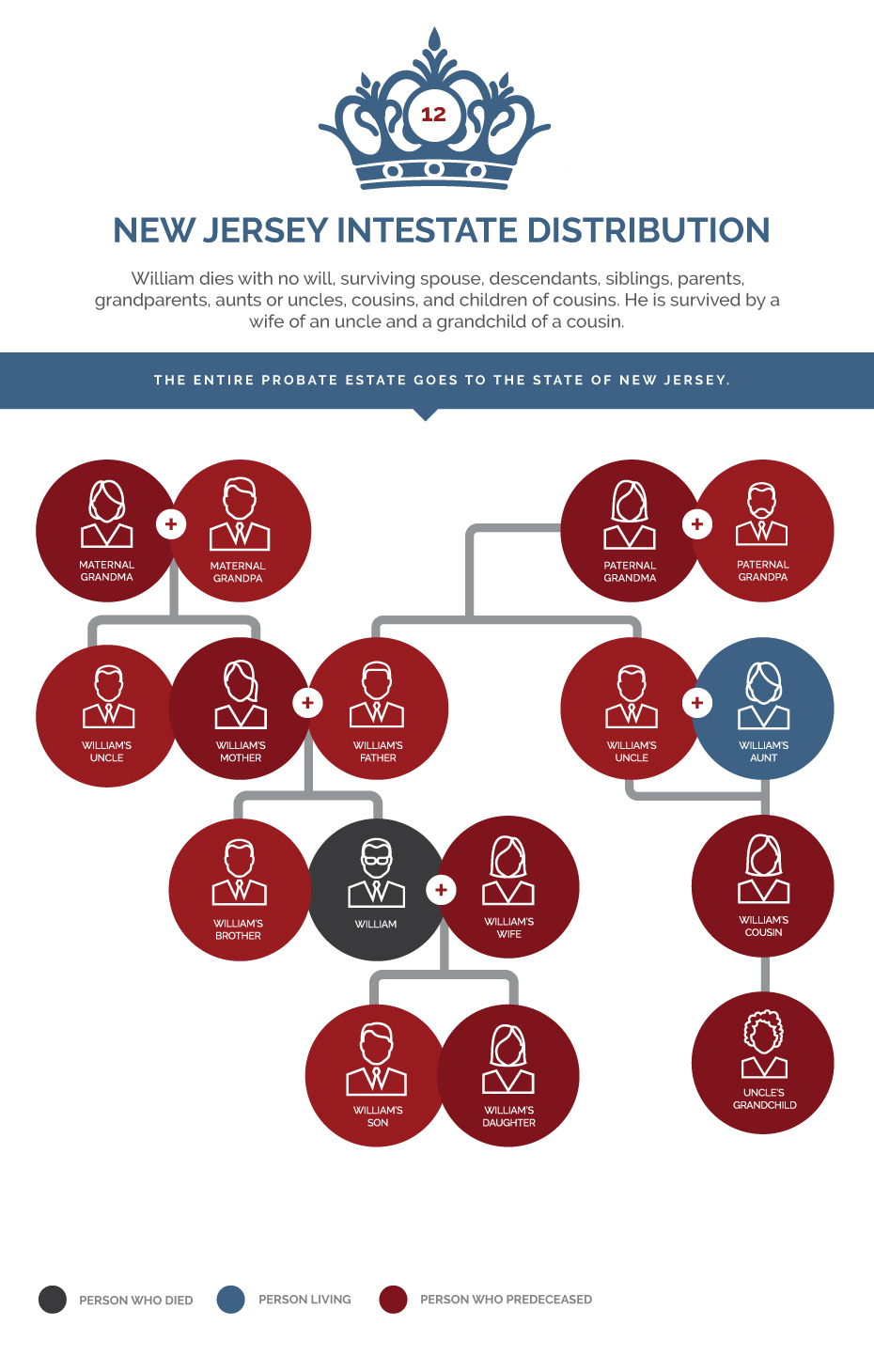Simplifying the New Jersey Rules of Intestate Succession
Who gets your property if you die without a last will and testament in New Jersey? To answer this question, you must know which family members survived the decedent. For example, whether the decedent has a surviving spouse, children, parents, or more distant living relatives. Each state has enacted an intestate succession law, which is a government-mandated estate plan for when a person dies without a Will. Here is a link to the New Jersey statute for reference.
The answer to this inquiry depends on which family members or relatives survived the person who died (the decedent) without a Will. This page seeks to explain in clear terms with simple examples what happens to a person’s probate assets if he or she dies intestate in New Jersey.
Before the examples begin, remember, property that is held jointly with the right of survivorship or that has a beneficiary designation will not follow the intestacy statute. Each example below has a pictograph example, simply click on the box to the right. As always, please contact us for a free consultation if you have any questions.
Fairly Straight Forward New Jersey Intestate Succession Examples
We start with some fairly straightforward examples, then move onto more complex family situations at number 8 below.
More Complex New Jersey Intestacy Examples; When There Is No Surviving Spouse or Descendants
This is where our analysis becomes tricky. So long as there are lineal descendants of the decedent’s grandparents the probate estate passes to a relative. Otherwise, property may also pass to step-children of the decedent or if no other heirs can be found the probate estate passes to the State of New Jersey.
The first step of the analysis is to divide the probate estate into two equal shares; one for the maternal grandparents (and their descendants) and one for the paternal grandparents (and their descendants). Note: If there are no surviving grandparents or descendants of grandparents on either side then no division takes place, and the estate passes entirely to the paternal side of the family and vice versa. In some examples, the discussion takes place solely on the paternal side however the same analysis is necessary on the maternal side.
I hope this review of a complicated subject has been helpful to you. If you have further questions about intestate succession in New Jersey, feel free to contact us for a free consultation with one of our New Jersey Probate Lawyers.
Disclaimer: The contents of this website are intended to convey general information only and not to provide legal advice or opinions. The contents of this website and the posting and viewing of the information on this website should not be construed as, and should not be relied upon for, legal or tax advice in any particular circumstance or fact situation. The information presented on this website may not reflect the most current legal developments. Further, this website may contain technical inaccuracies or typographical errors. No action should be taken in reliance on the information contained on this website, and we disclaim all liability in respect to actions taken or not taken based on any or all of the contents of this site to the fullest extent permitted by law. An attorney should be contacted for advice on specific legal issues.
What Our clients are saying
Mark Mansfield
Been a long term customer of Klenk Law. Wills and Trusts are so important and that is their strength! They are hyper responsive to any question you may have, and you are always treated well. I feel like a part of their family when there. I feel very valued as well. Give them a try!
Chris Benson
My family and I was pleased with the service, and insight of Klenk Law. All of our questions and concerns were patiently answered. I will be referring this firm to many family and friends to assist with real estate planning etc. Thank Klenk Law
Randi Greenberg
Jackie is amazing! I have asked her many questions and she answers them professionally and honestly. She is very informative !!!
Lu Han
I have worked with three different attorneys and law firms over the years, and I can confidently say that attorney Peter Klenk stands out as the most knowledgeable. He created the most thorough wills and trust documents I've ever had. Mr. Klenk took the time to gather all the necessary details about my current situation and goals. As a result, he put together comprehensive documents that I believe will effectively protect my assets and ensure my children's inheritance is secure.
What truly sets Mr. Klenk apart is his patience and dedication to understanding my questions. He provided detailed explanations that made complex legal concepts much easier to grasp. His team's communication and scheduling were equally impressive, making the entire process smooth and stress-free.
Thank you, Mr. Klenk, and your fantastic team, for your exceptional service!
James Palmer
Recently hired this firm to help me write a will (something I had been procrastinating on doing for too long). The process was quick, easy, painless and I'm glad that thanks to the great team at this firm I was able to cross this off my "to do" list!!
Let us put our expertise to work for you.
Free consultation within 24 hours.




